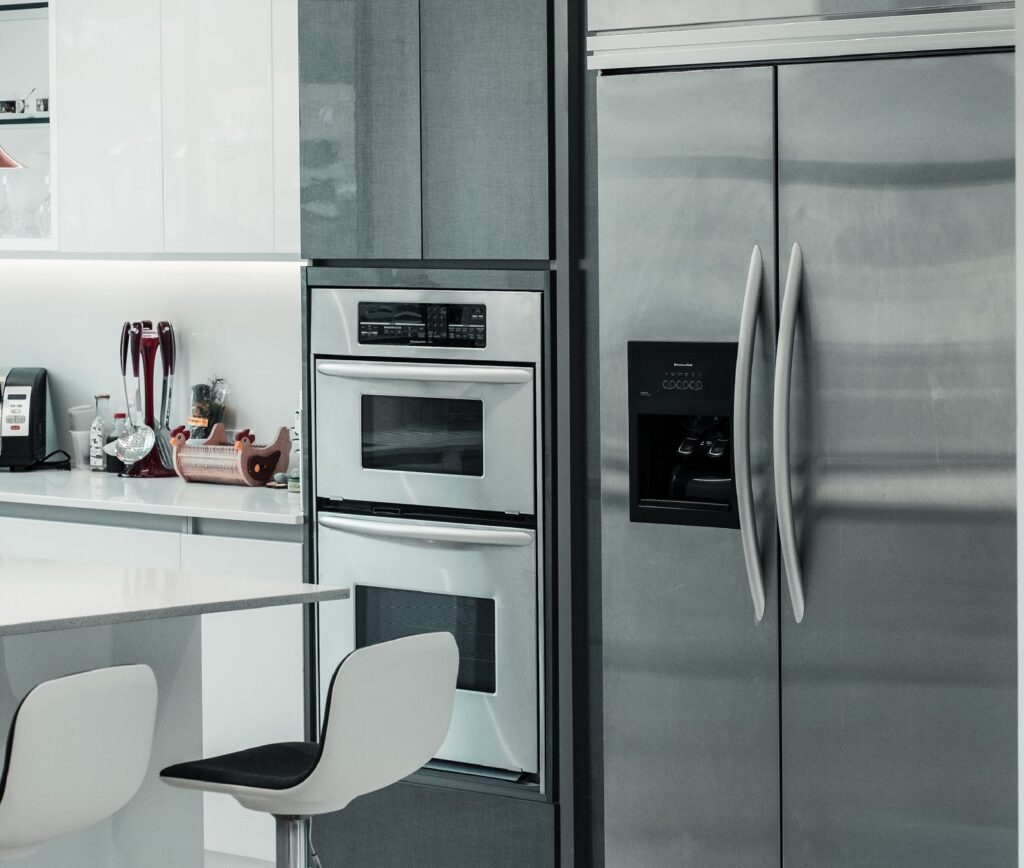Have you ever been to a kitchen showroom to pick out a countertop? The choice is staggering.
From traditional formica tops, all the way up to marble and soapstone, a homeowner can be committing to a much more intensive cleaning program than they bargained for if they choose purely based on looks. Here are some tips for cleaning 4 popular types of countertop.
Stainless Steel Countertop
This is a very popular material, featuring in just about every professional kitchen seen on TV. There is a reason for that.
An extremely durable surface, it requires little more than wiping with soap and water.
Use a microfiber cloth, and wipe in the direction of the grain to keep things shiny. However, stains can happen.
A paste of dish soap and baking soda will take care of the majority, but a shot of vinegar in the mix should obliterate anything more resistant. An occasional polish with stainless steel products will keep it looking brand new for a long time.

Soapstone and Engineered Stone
These two types of stone can be very different in terms of maintenance, but cleanup is the same. Mild detergent and water with a soft cloth will take care of the daily messes.
Engineered stone is largely stain resistant, and require little to no maintenance. Soapstone, on the other hand, may need very fine sandpaper to remove tough stains that cannot be removed with multipurpose cleaners, and requires regular application of mineral oil to protect the surface.
Marble and Granite
These materials are both of exceptional durability. Daily cleanup can be done with dish soap and water.
A microfiber towel will serve to shine the stone, and no other cleaners are necessary or desirable. However, regular sealing is required to keep the surface resistant to stains.
Granite can be resealed once a year, whereas marble will need to be done every few months. Stains can be tricky.
Always do a spot test early on to check for color change. Pros recommend allowing a paste of baking soda and water to sit on the area for at least 24 hours for oil based stains, before rinsing.
Water based stains can be cleared using hydrogen peroxide and baking soda in the same manner. If these don’t work, or the color changes, talk to the manufacturer for specific recommendations.
Wood
Everyone loves a great butcher block counter right?! However, they are the most maintenance intense of all.
Daily cleaning involves wiping with soapy water, but food residue must be scraped off carefully, and counters (even well-sealed ones!) must be kept dry. Scratches and dings are inevitable, and can be dealt with by careful sanding and reapplication of protectant or sealants.
Stains too, can be sanded out, but care must be taken not to take out too much material. Maintenance must be consistent too.
Penetrating oils and resins are great for keeping that natural look, but must be reapplied every 6 months, and may not necessarily protect against warping. Topical sealers, (usually in the form of an epoxy or varnish) can totally water seal the wood, but are problematic for the chemicals and intensive work to remove and reapply when they wear down.
Whatever your choice, keep these tips in mind to keep your counters looking great for years!
